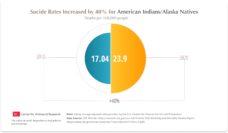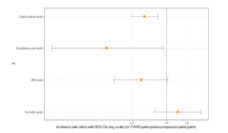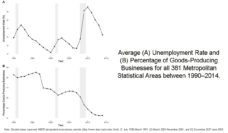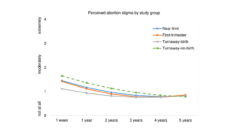November is over. With it, Native American Heritage month has ended. But for Indigenous Women Rising, their work is never done.
Indigenous Women Rising (IWR) was founded in 2014 by Rachael Lorenzo (Mescalero Apache/Laguna Pueblo/Xicana) to bring Indigenous voices to discussions about reproductive health care access. In 2018, Martin joined IWR as a co-founder and helped support the launch of their abortion fund. 2.6 million Native Americans had come to rely on the federally funded Indian Health Services for medical care, which essentially cut off Indigenous people from abortion funding even before the recent Dobbs decision. Martin explains: “If Roe was solid in the first place, if it was actually intended to advance the wellbeing of Indigenous, Black, Brown, disabled, and low-class communities, then it would have. But it didn’t, and that’s why we started the abortion fund.”
The abortion fund, dependent on donations, had limited resources at the outsets; recipients received only up to $100 for care. But funding has expanded during this November’s Native American Heritage month and after the Supreme Court’s Dobbs decision left abortion rights up to the states. IWR now funds abortion care for people in 37 states.
IWR’s abortion fund is national and pays for transportation. But they also have a midwifery fund for New Mexico families. The fund covers midwives or doulas, who improve birthing experiences but are sparsely covered by insurance. In Martin’s words, “We’re not providers, but we can provide people the funding to get the care that they need.”
Indigenous groups have often been left out of essential health care policy changes. In 2006 the U.S. FDA approved over-the-counter emergency contraceptives, colloquially known as “Plan B,” but it wasn’t available through the IHS until 2015, after Indigenous organizers made it happen. And Martin herself experienced access difficulties, only receiving Plan B contingent on a negative pregnancy test. At Martin’s closest IHS location, they didn’t even stock Plan B.
These days IWR is working as part of the Free the Pill coalition to get FDA approval for hormonal contraceptives prescribed over the counter, and to ensure Indigenous people will not get left out. IWR’s current strategy is to build coalitions to advocate for care gaps to be filled or fill the gaps themselves. Already the National Congress of American Indians has passed a resolution in support of access to over-the-counter birth control pills that are affordable, covered by insurance, and provided within the Indian Health Service system.
But directing all their advocacy efforts at the federal government, Martin feels, “always falls on deaf ears.” So they are working to increase IWR’s partnerships and thereby their lobbying power. Martin believes building connections with the native men who hold power in tribal governments is key: “If they’re going to be in those places of policy making, they need to understand the bigger picture.” IWR now has a tribal liaison to ensure reproductive health care needs are prioritized among IHS and tribal leaders.
Academic partnerships are also key. Universities can help collect or visually represent data on health statistics for Indigenous people, which are limited. IWR is working on a map to show where the organization provides support and how far people are traveling to access care. Martin says these academic partnerships are crucial: “We wouldn’t be able to do it if it weren’t for the students at the University of Texas wanting to help and work with us.
By lobbying state, tribal, and federal governments, through coalition building and direct funding for care that protects Indigenous families, Indigenous Women Rising is driving health care policy. Their fight to reclaim health care sovereignty for Indigenous people continues.
Photo provided














